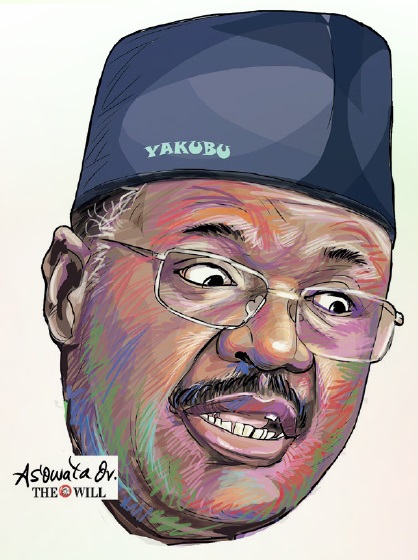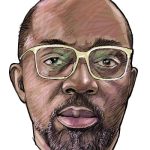July 07, (THEWILL) – As Nigeria reflects on the first year of the Bola Tinubu Administration, Britain’s recent general election serves as a stark reminder of the democratic ideals we still strive to achieve. The contrasts between the UK’s smooth electoral process and our tumultuous 2023 general poll are not merely academic; they highlight critical areas where our democratic journey demands urgent attention and reform.
Our 2023 general election, now a year behind us, cast a long shadow over Nigeria’s democratic landscape. The election, marred by logistical failures, violence and allegations of fraud, fell woefully short of the expectations of a nation eager for progress.
The UK’s seamless electoral process throws into sharp relief the systemic issues that continue to plague our electoral system, issues that remain largely unaddressed a year into the new administration. The comprehensive voter education efforts of the UK Electoral Commission stand in stark contrast to INEC’s struggles in 2023. While British voters entered polling stations well-informed about their choices and the process, many Nigerians grappled with confusion over new technologies like BVAS.
A year on, INEC’s efforts to bridge this knowledge gap have been lacklustre at best. The forthcoming off-cycle elections will likely expose the same shortcomings, underscoring the urgent need for a robust, continuous voter education programme.
The substance of UK campaigns, focused on policy issues and featuring robust debates, highlights a persistent weakness in Nigerian politics. Our 2023 campaigns were mired in personal attacks and ethnic baiting, with scant attention to policy details. Regrettably, this trend has continued in the past year, with political discourse rarely rising above partisan mudslinging. The quality of opposition critique and government defence of its first-year record has been disappointingly shallow, offering little in the way of substantive policy debate.
The orderly and efficient UK voting process serves as a painful reminder of the chaos that characterised Nigeria’s 2023 polls. Reports of violence, intimidation, and widespread logistical failures tainted our electoral exercise. A year into the new administration, there has been no meaningful dialogue or legislative action to address these issues. The peaceful conduct of a few by-elections offers a glimmer of hope, but comprehensive reform remains elusive.
INEC’s failure to promptly upload results to its viewing portal in 2023 bred distrust and confusion, a stark contrast to the UK’s swift, transparent tallying process. As of today, INEC has yet to conduct a thorough, public post-mortem of its technological failures, suggesting that the fundamental issues remain unresolved.
The graciousness of British politicians in victory and defeat stands in sharp contrast to the acrimonious aftermath of our 2023 general poll. As a consequence, today, our political landscape remains deeply divided. Opposition figures continue to challenge the legitimacy of the election, while the ruling party dismisses these concerns. This entrenched animosity hampers national unity and undermines faith in our democratic processes.
While Nigeria managed a formal transfer of power on schedule, the cloud of electoral disputes has lingered far longer in contrast with what we witnessed with the UK’s swift transition of power. Here, the life of the new administration and governance in general was hampered by legal challenges that went all the way to the judges of the Supreme Court. The political bickering has still not lifted from our political atmosphere. The pace of policy implementation has been slow, with the government struggling to address pressing national issues amidst the backdrop of electoral controversies.

The impartiality and effectiveness of British institutions during their election also highlight ongoing challenges in Nigeria. A year after our contentious polls, efforts to reform INEC, strengthen the judiciary’s independence or improve the neutrality of security forces in electoral matters have been minimal. The handling of electoral disputes and off-cycle elections in the past year suggests that our institutions remain vulnerable to political interference and manipulation.
The UK’s balanced use of technology in its recent election must remind us of the challenges we continue to grapple with about the ambitious deployment of new systems in 2023. INEC has made little progress in refining its technological approaches. The BVAS system and results transmission processes remain largely unchanged, with no significant announcements regarding improvements or upgrades.
The decisive mandate delivered by British voters underscores the ultimate power of the electorate in a functioning democracy. In Nigeria, election after election has witnessed a noticeable decline in civic engagement. Voter apathy appears to be on the rise, fueled by disappointment in the electoral process and the perceived inability to effect change through the ballot box. Grassroots movements pushing for electoral reforms have struggled to gain traction in the face of political inertia.
All of these are disheartening in the face of what we saw play out in Britain. As we enter the second year of this administration, a year since the controversial 2023 general election that brought it to power, the recent UK polls serve not just as a contrast but as a renewed call to action. The peaceful transfer of power we witnessed in Nigeria, despite the electoral shortcomings, was a step forward. However, the gulf between our processes and international best practices remains distressingly wide.
The onus is now on the Tinubu administration, INEC, the legislature, politicians and political parties and indeed all Nigerians to drive the reforms needed to elevate our democratic standards.
Concrete steps towards electoral reform in the past year have been few and far between. Our leaders have yet to demonstrate the political will necessary to strengthen our democracy. Yet, as we reflect on these shortcomings, we must renew our commitment to building a more robust democratic system. The path to reform is long and fraught with challenges, but with sustained effort and civic engagement, Nigeria can aspire to conduct elections that truly reflect the will of its people and stand as a model for Africa.
The contrasts highlighted by the UK election are a sobering reminder of the work ahead, but they should also inspire us. Nigeria’s potential for democratic excellence is vast.
By learning from our missteps in 2023 and drawing inspiration from global best practices, we can forge a stronger, more transparent, and more accountable electoral system. The journey continues and every step forward counts. It is time for all Nigerians to demand better standards, engage more deeply with our democratic processes and to hold our leaders accountable for the promise of a truly representative government.







